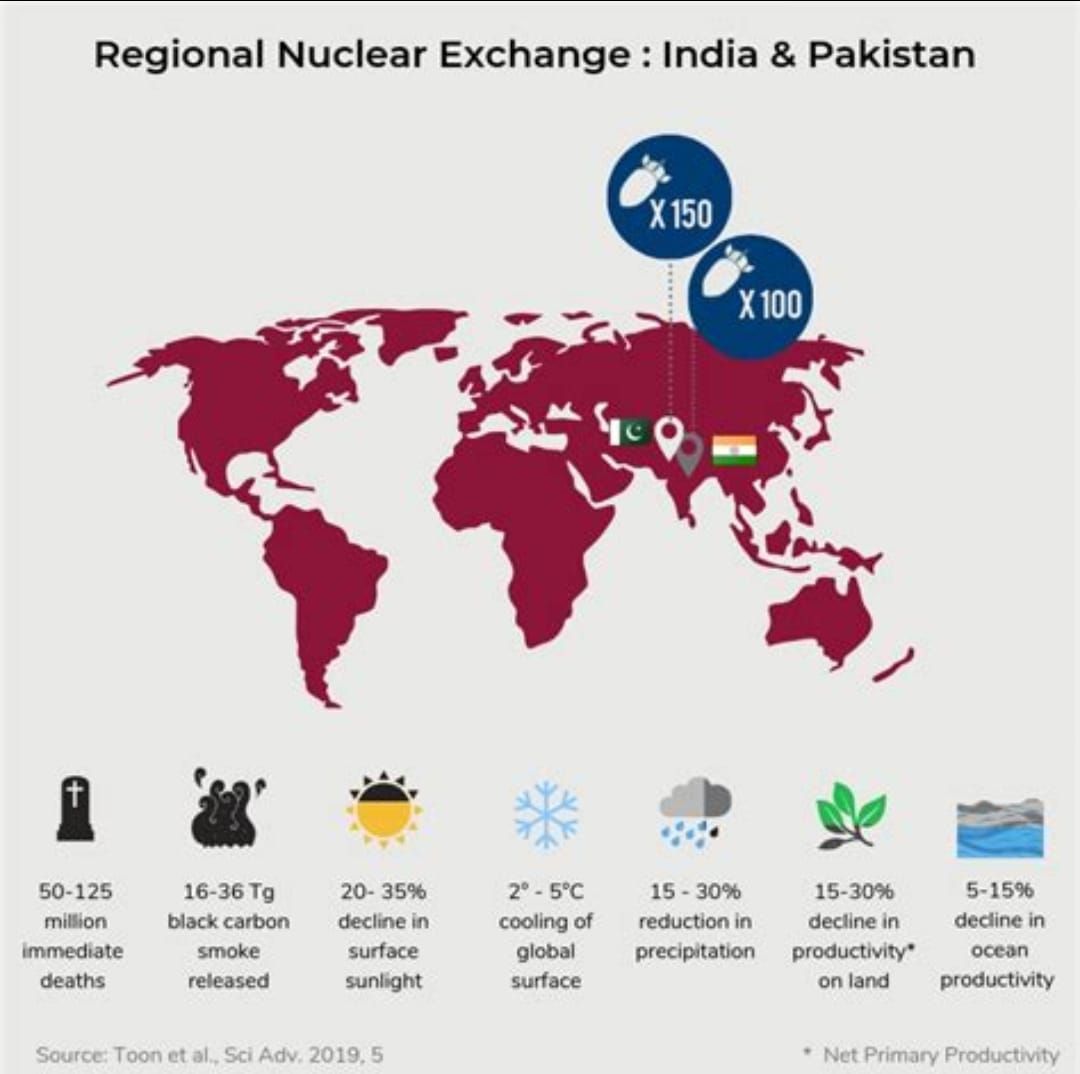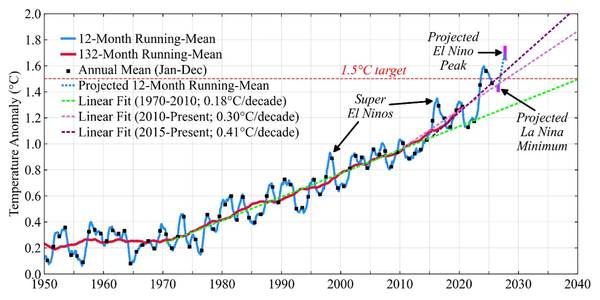India and Pakistan Sliding Into Global Nuclear Catastrophe
Media ignoring global impacts

Let me be blunt: the escalating conflict between India and Pakistan isn't just a regional issue - it's a ticking time bomb with the potential to devastate the entire planet. In April 2025, a brutal massacre in Pahalgam, Kashmir, claimed 26 lives, igniting a series of retaliatory strikes between these two nuclear-armed nations. India launched "Operation Sindoor," shutting water supply to Pakistan and striking alleged militant sites. Pakistan responded with drone and missile attacks on Indian targets.
The situation has rapidly deteriorated. Today, over 100 fighter jets from both sides engaging in one of the largest aerial dogfights since World War II !!! Let me repeat the terrifying part: Both countries are nuclear powers, each with an estimated 150 warheads.
A full-scale nuclear exchange between India and Pakistan could result in 50 to 125 million immediate deaths. The environmental consequences would be catastrophic, with massive fires releasing up to 36 teragrams of black carbon soot into the upper atmosphere, blocking sunlight, and causing global temperatures to drop by 4–8°C. This "nuclear winter" would lead to a 15–30% reduction in precipitation, severely disrupting ecosystems and agriculture worldwide.
A 2019 study closely examined the global impacts of a regional nuclear war:
"There is no such thing as a ‘contained’ nuclear conflict,” said Beatrice Fihn, Executive Director of the International Campaign to Abolish Nuclear Weapons. “Any use of nuclear weapons will mushroom into a global famine threatening all of human existence."
The resulting food shortages could put over two billion people at risk of starvation, particularly in regions like North America, Europe, and Asia. Livestock and marine food sources wouldn't be able to compensate for the loss in crop production. The global economy would collapse, social unrest would spread, and mass migrations would become the norm. Despite these dire warnings, the international community remains largely silent. US "leadership" appears distant.
The media treats this as a localized conflict, failing to grasp the global implications. It's time to wake up.
India and Pakistan clearly understand the lose-lose consequences of nuclear escalation, but the weaponization of water takes the conflict to an unprecedented level. Watch closely for cataclysmic language from either country.
The world must act now to de-escalate tensions, and promote diplomatic solutions.
(I'd also suggest nuclear disarmament, but i know that'll never happen.)



